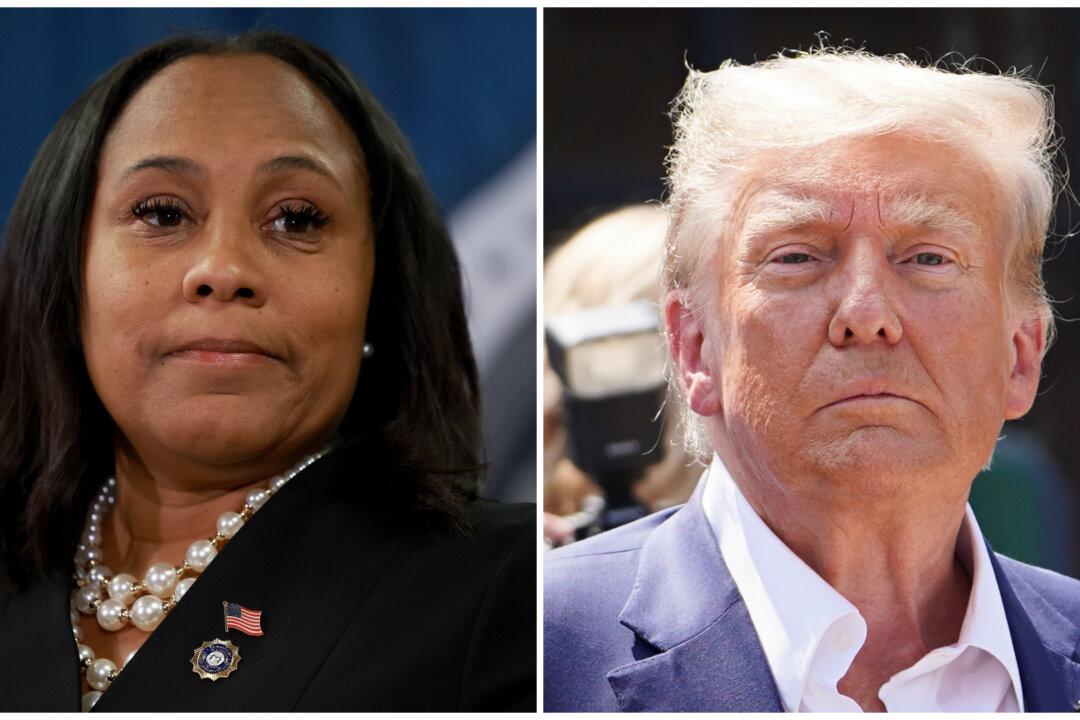The lawyers for former President Donald Trump asked a judge to throw out two charges in his Georgia election case, arguing that Fulton County District Attorney Fani Willis has gone outside of her legal jurisdiction in bringing them.
Trump lawyers Steve Sadow and Jennifer Little on Wednesday filed court papers asking Fulton County Judge Scott McAfee, who is overseeing the case, to dismiss two charges against the former president and co-defendants. Namely, the filing wants dismissed the conspiracy to file false documents and filing false documents counts.





